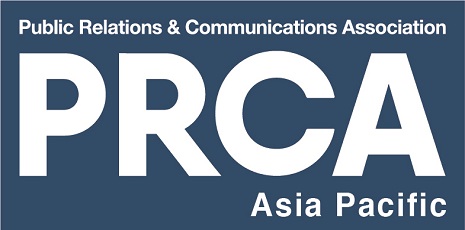PR has always been fast-paced, which is good and bad. All too often, it burns people out. Until very recently, the industry saw this as quite normal. The idea that our working environment could be detrimental to people’s mental well-being got little play. Then the pandemic turned things on their head. The sudden state of upheaval catapulted the topic of mental health into the industry’s consciousness.
On the positive side, people seem to want to quantifiably understand the extent of the problem. A survey by the PRCA Asia-Pacific and YouGov found that nearly half of PR professionals are extremely stressed at this moment in time. A third blame the pandemic for worsening their mental health. Yet many of the apparent causes are not specific to the conditions of the pandemic, and are likely to persist beyond it. They include high workload, long hours, not enough appreciation, and lack of career growth. Sound familiar?
To address the personal impact of these issues, it is reasonable for employers to look at introducing specific ‘mental health resources’, which the survey finds many across the region lack. But the form they take, and the outcomes they achieve, warrant scrutiny.
The term ‘mental health’ is suddenly fashionable, which is dangerous. It means that it is at risk of being co-opted by corporations in the same way as terms like ‘sustainability’ and ‘transformation’ have been. These are all complex, critical topics that take time and effort to understand and act on. Yet in the rush to seem up to date with trends, companies and executives often reduce them to little more than token gestures to burnish their image.
In the agency world, mental health initiatives, when present at all, have typically been geared around ‘fixes’: a yoga or mindfulness lesson here, a day off for wellness there. While these are nice to have and can make for good employer marketing, they don’t solve problems either.
Like anything that’s important, ensuring the mental well-being of staff is not as clear-cut as a series of perks or initiatives. To begin with, we need to acknowledge that for many employees in Asia, ‘mental health’ still carries a stigma.
Even as the PRCA survey suggests that most would be comfortable talking to a colleague about a mental health-related concern, discussing it with their boss is likely to be another matter. There are multiple reasons for this, but high among them is that people are afraid to show what they perceive to be weakness, believing that it will hamper their reputation or career progress. Employers that operate their own anonymous helplines often have the right intentions, but the uptake is often low, and the benefits unclear.
Having acknowledged this, we then need to recognize that nurturing mental well-being is an ongoing cultural effort. For employers, the goal should be to create and sustain an environment that is conducive to mental health. This means genuinely caring about the well-being of every employee, and understanding what matters to them.
The things that are important to one person — for example, having flexibility for family — are not the same as for the next — being constantly challenged and rewarded, say. Once as a manager you understand a person’s priorities, you also gain a sense of what is likely to destabilize them, and the red flags to look out for.
You can then work together to shape a working lifestyle that is healthy for both the employee’s state of mind and the company. The conversations you have do not have to be labelled as mental health-related at all — although if an employee wants to speak about something in those terms, you must be open to it.
It goes without saying that this isn’t easy. It requires effort on both sides and a sense of give-and-take. For the employer or manager, it means encouraging regular one-to-one dialogue, truly listening, and being supportive. If someone says they are overwhelmed, it is important to identify the real reason. It isn’t always as obvious as it might seem.
For employees, it is a question of proactive self-management — understanding your personal priorities and asking for what you need to satisfy them. Sometimes, it is about jointly formulating a plan to overcome a challenge, which might even relate to something outside the workplace that is impacting your wellbeing, and managing it like a KPI.
At The Hoffman Agency, we certainly don’t have all the answers, but we are working on them. We do know that the demanding nature of the industry is unlikely to change any time soon, mental health challenges will always be present, and that we are much better equipped to face these things if we show empathy and concrete support for each other. Above all, as an industry, we can’t allow ‘mental health’ to become just another fad. Our duty is to make it part of our collective culture and work constantly to uphold it.


